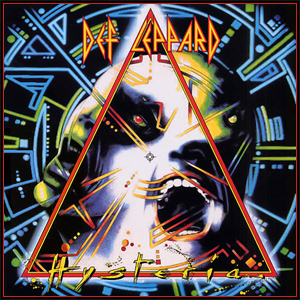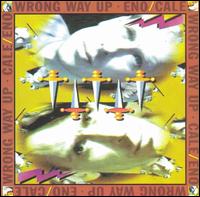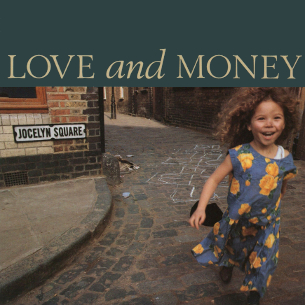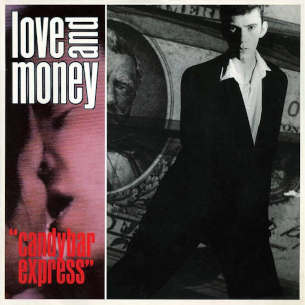
Hysteria is the fourth studio album by English rock band Def Leppard, released on 3 August 1987 through Phonogram Records. It is Def Leppard's best-selling album to date, selling over 20 million copies worldwide, including 12 million in the US, and spawning seven hit singles. The album charted at number one on both the Billboard 200 and the UK Albums Chart.

Another Music in a Different Kitchen is the first studio album by the English punk rock band Buzzcocks. It was released in March 1978 by the United Artists record label. This was the third line-up of Buzzcocks, with the guitarist Pete Shelley singing following the departure of the original vocalist Howard Devoto and then the firing of the bass guitarist Garth Smith. The album includes the single "I Don't Mind", which reached number 55 in the UK Singles Chart in May 1978.

Wrong Way Up is the sole collaborative studio album by Brian Eno and John Cale, originally released on October 5, 1990 on Opal and Warner Bros. Records. The album sits between the electronic, prog-rock and art rock genres and features some of both Eno and Cale's most mainstream work.

"I'm Not in Love" is a song by British group 10cc, written by band members Eric Stewart and Graham Gouldman. It is known for its innovative and distinctive backing track, composed mostly of the band's multitracked vocals. Released in the UK in May 1975 as the second single from the band's third album, The Original Soundtrack, it became the second of the group's three number-one singles in the UK between 1973 and 1978, topping the UK Singles Chart for two weeks. "I'm Not in Love" became the band's breakthrough hit outside the United Kingdom, topping the charts in Canada and the Republic of Ireland as well as peaking within the top ten of the charts in several other countries, including Australia, Germany, New Zealand, Norway and the United States.
Love and Money are a Scottish rock/soul/funk band, formed in 1985 in Glasgow, Scotland. The band was formed by three former members of Friends Again along with bassist Bobby Paterson, who replaced Friends Again's Neil Cunningham and who had been a member of Set the Tone, a band previously signed to Island Records in 1983.

"Detroit" is a song by Scottish rock band Whiteout, released as their third single in 1994. Although it was not part of the band's debut album Bite It (1995) on its initial release, there is an expanded edition available which has "Detroit" added as a 13th track. The B-side "Dee Troyt" is a slowed-down, almost acoustic version of the single's title track with some alternate lyrics and layered harmonies reminiscent of The Beach Boys. The second B-side, "Just Passin' Through, Kid"—a country-esque instrumental song—also appeared as the last track on the Japanese EP No Time.

"Whenever You Need Me" is a song by English band T'Pau, released as the lead single from their third studio album, The Promise (1991). It was written by Carol Decker and Ron Rogers, and produced by Andy Richards. "Whenever You Need Me" reached No. 16 on the UK Singles Chart and remained in the charts for six weeks. It was the band's last Top 40 hit in the UK.

"It Won't Be Long" is a song by British singer-songwriter Alison Moyet, which was released in 1991 as the lead single from her third studio album, Hoodoo (1991). It was written by Moyet and Pete Glenister, and produced by Glenister. A music video was filmed to promote the single, while Moyet also performed the song on Wogan.

"You Make the Whole World Cry" is the only single to be released from the album Eleven Kinds of Loneliness by British musician Tanita Tikaram. The record was issued on 10 February 1992 via East West Records label. In 1996 the song was included in her album The Best of Tanita Tikaram.

"Ships (Where Were You)" is a song by Scottish rock band Big Country, written by Stuart Adamson (lyrics, music) and Bruce Watson (music). The song was originally recorded for and included on the band's fifth studio album No Place Like Home (1991). It was then re-recorded for their following album, The Buffalo Skinners (1993), and released as the album's second single. "Ships (Where Were You)" reached number 29 in the UK Singles Chart and remained in the top 75 for three weeks.

Littledeath is the fourth studio album by Scottish band Love and Money, released by Iona Gold in the UK in 1993 and Mesa Records in the US in 1994. The album produced one single, "The Last Ship on the River".

All You Need Is... is the debut studio album by Scottish band Love and Money, released by Mercury in 1986.

The Devil's Debt is the fifth studio album by Scottish band Love and Money, released by Vertical in 2012.

Satellites is the third and final studio album from Scottish pop band The Big Dish, which was released by East West in 1991. The album peaked at No. 43 in the UK Albums Chart and remained in the Top 100 for two weeks.

"Winter" is a song by Scottish band Love and Money, which was released in 1991 as the third and final single from their third studio album Dogs in the Traffic. The song was written by James Grant and produced by Steve Nye. "Winter" reached No. 52 in the UK Singles Chart and remained in the Top 100 for two weeks.

"Jocelyn Square" is a song by Scottish band Love and Money, which was released in 1989 as the third single from their second studio album Strange Kind of Love. The song was written by James Grant and Bobby Paterson, and produced by Gary Katz. "Jocelyn Square" reached No. 51 in the UK Singles Chart and remained in the Top 100 for four weeks.

Strange Kind of Love is the second studio album by Scottish band Love and Money, released in 1988.

"Candybar Express" is a song by Scottish band Love and Money, which was released in 1986 as the debut single from their debut studio album All You Need Is.... The song was written by James Grant and produced by Andy Taylor. "Candybar Express" reached number 56 in the UK Singles Chart and number 10 on the Billboard Hot Dance/Disco Club Play chart.

"Strange Kind of Love" is a song by Scottish band Love and Money, which was released in 1989 as the second single from their second studio album Strange Kind of Love. The song was written by James Grant and produced by Gary Katz. "Strange Kind of Love" reached number 45 in the UK Singles Chart and remained in the top 100 for five weeks.

"My Love Lives in a Dead House" is a song by Scottish band Love and Money, released in 1991 as the lead single from their third studio album Dogs in the Traffic. The song was written by James Grant and produced by Steve Nye.



















